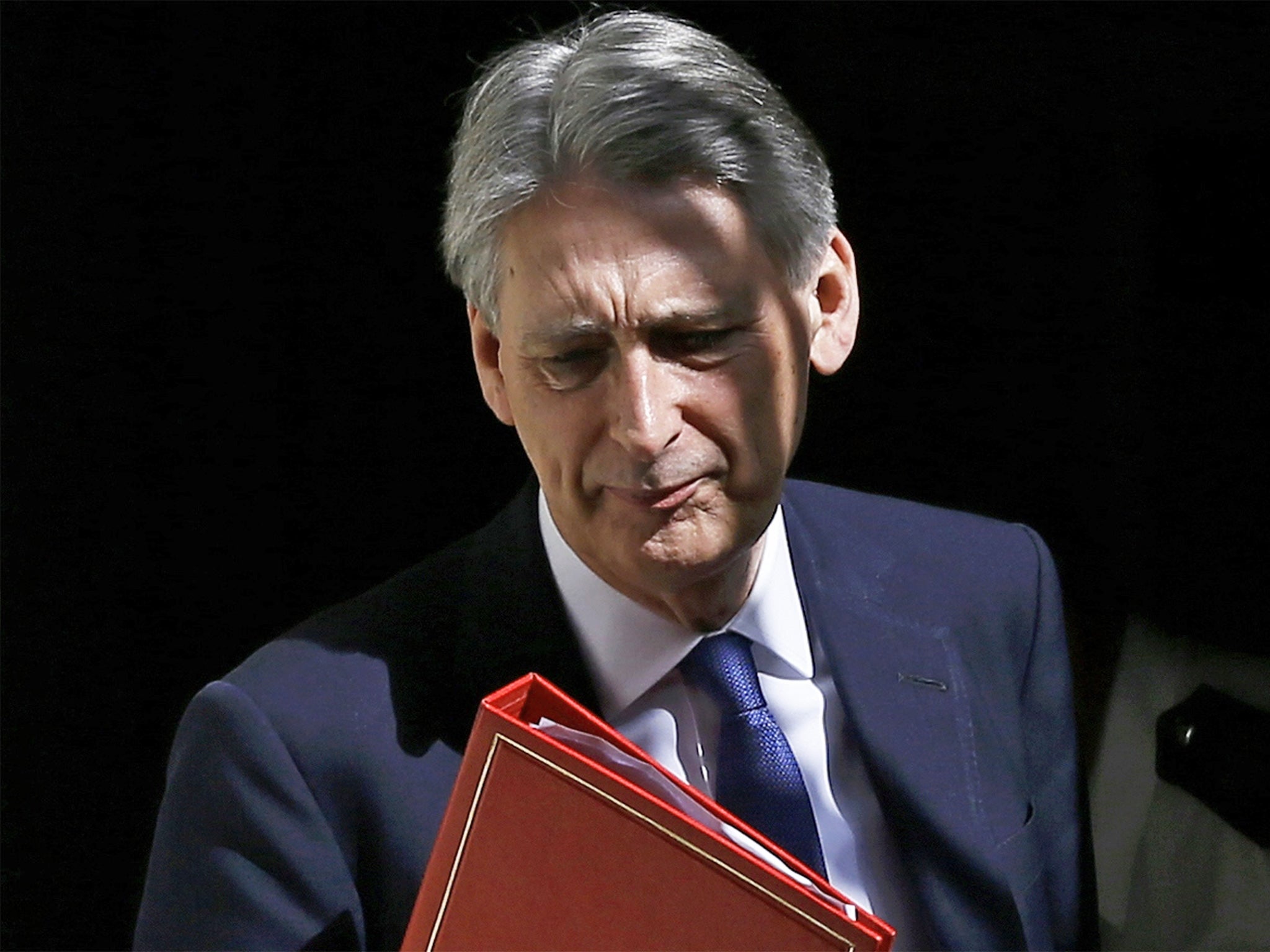Philip Hammond replaces George Osborne: 8 things the new Chancellor has planned
Hammond said the uncertainty that has wracked markets is the biggest threat to the UK economy

Philip Hammond, a man once described as "reassuringly boring", has set out some of his plans for the economy on his first morning Chancellor of the Exchequer.
In a series of interviews on Thursday morning, Hammond was quick to say that he hadn’t replaced Osborne because of his policies, but was clear he wouldn’t be keeping to all of his predecessor’s plans.
“This is a new phase,” he said, setting himself apart from Osborne’s austerity politics.
Here’s what we know so far:
1. Corporation Tax
George Osborne had planned to cut UK corporation tax to 15 per cent by 2020, a promise that brought accusions that he was turning the UK into a tax haven.
Philip Hammond refused commit to this plan, however, sticking to: "We need to make sure that the UK remains an attractive investment prospect for companies from overseas."
2. Brexit
Hammond said the uncertainty that has wracked markets is the biggest threat to the UK economy in the aftermath of Brexit and that he plans to act decisively to try and restore confidence.
What that would actually entail was unclear.
“The fact that we've moved quickly to resolve the situation of the leadership of the Conservative Party and get a new prime minister installed I think will help to restore business and consumer confidence,
"What we've got to do now is show as a team how we're going to take this negotiation with the EU forward, how we're going to stabilise and support the economy through the coming months in order to help that confidence to be restored as quickly as possible,” he said.
3. Austerity
He described the austerity approach adopted in 2010 as “absolutely the right approach”. But called the current climate “a new phase” that would need a different approach.
“Of course we have to reduce the deficit further. When and how we do that we will need to consider in light of the new challenges the economy is facing. I will be sitting down with the Bank of England in less than an hour. My initial judgement is that the immediate impact on the economy has come from businesses suspending decisions,” he said.
4. Single market
Despite promising to act quickly, Hammond also said that it was important to get the right trade deal.
“We need to ensure access to the single market for our financial services industry. The important thing is not how long it takes to ratify the treaty but the terms of that deal.
"I hope we can do that sooner rather than later so that people can understand the terms of the trading relationship between the UK and EU, because if there is one thing that is hurting the economy right now it is uncertainty,” he said.
5. The City of London
There has been lots of talk about banks and businesses moving staff to Europe if the UK loses access to the single market.
Hammond said that won’t happen.
“The City is highly resilient. It isn’t so easy for somewhere to set itself up as a credible alternative. There is no room for complacency. We have to make sure that we have in our minds the access to the single market for financial services in London. That’s in the interests of the EU as well because London supplies crucial support services," he said.
6. Emergency budget
Hammond said an emergency budget isn’t necessary, despite Osborne’s warnings just three weeks ago that one would be needed. He told Sky News that the Budget would be set out “the usual way” with the autumn statement instead.
“There's a lot of work now to do,” he said. “The Prime Minister made clear we will do an autumn statement in the usual way in the autumn and we'll look carefully over the summer at the situation.
”I'm seeing the governor of the Bank of England this morning and we'll take stock of where we are.“
7. Heathrow expansion
Hammond failed to commit to building a third runway at Heathrow under this Government, saying he hadn’t yet sat down to look at the research properly.
“London’s additional runway will be a decision for the new Government. We haven’t dicussed it yet. I want to look at the additional evidence the Transport secretary has done,” he said.
Theresa May's Cabinet: Who's in – and who's out?
Show all 278. Hinkley Point
Hammond was far more committed to building Hinkley Point than he was a third runway, even going so far as to say he had already been negotiating with Chinese investors.
“We need to replace Britain’s ailing energy sector. I’m confident that we will get Hinkley Point to go ahead.
“I’ve been talking to our Chinese partners. We have to approach this on the basis that power generation is an absolute pre-requisite for a modern economy. Hinkley Point will make a huge contribution to our capacity and we have to make sure it goes ahead,” he said.
Subscribe to Independent Premium to bookmark this article
Want to bookmark your favourite articles and stories to read or reference later? Start your Independent Premium subscription today.

Join our commenting forum
Join thought-provoking conversations, follow other Independent readers and see their replies